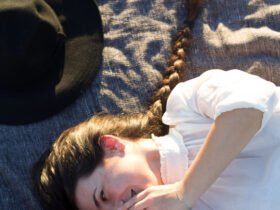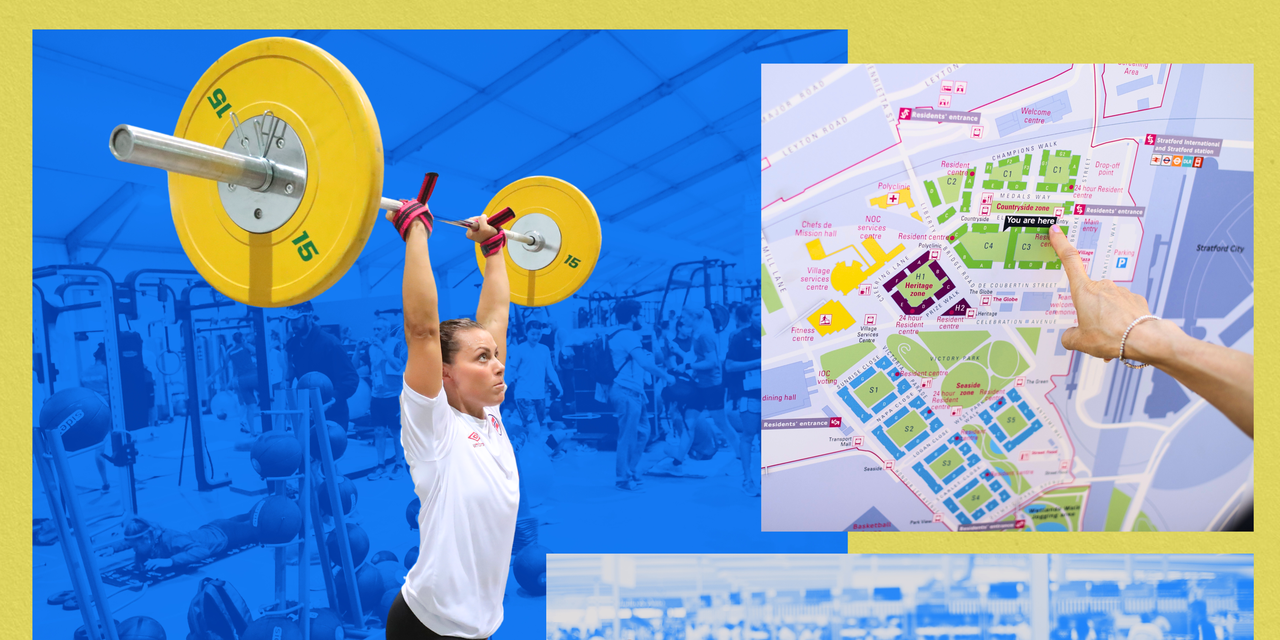When you turn on the TV later this month, you’ll see the Olympics in all its glory—athletes flipping in the air, kicking through the water, and sprinting around the track, among other eye-popping feats. And the Paralympics, beginning August 28, will only continue with the momentum.
But what happens behind the scenes, in the storied Olympic and Paralympic Village, when the cameras are off? Athletes eat, sleep in cardboard beds, play Mario Kart, train and recover, and connect with friends and idols alike as they all prepare for—and celebrate or mourn after—one of the biggest events of their lives. Here’s more about exactly what they experience, from a dozen athletes who know it best.
The vibe is generally upbeat and pretty intense.
“It’s electric, it’s global—it’s a community that’s vibrant. Everyone’s so excited and happy to be there—it’s like, ‘We made it to the Olympics. This is our dream.’ There are athletes from all over the world, from different walks of life. It’s so cool.”—Helen Maroulis, wrestler who won bronze in Rio in 2016 and gold in Tokyo in 2020
“It’s crowded! It’s kind of ironic because you think of the Olympics as this elite sporting event where such a small percentage of people ever get to go, but then you’re in the Olympic Village with thousands of people. At the same time, it’s super fun and you feel how special it is.”—April Ross, beach volleyball player who won silver in London in 2012, bronze in Rio in 2016, and gold in Tokyo in 2020
“You experience the Olympic and Paralympic spirit to the fullest extent in the Village. Everybody there is an elite athlete and they’re so proud to be there representing their country. There’s a buzz around competition and wanting to meet other people.”—Nicky Nieves, sitting volleyball player who won gold in Rio in 2016
“It’s chaotic. Typically, the marathons are towards the end of the program. So you have this real festival vibe, and then you have a very serious, I’m focused on the biggest event of my career vibe, and it’s a lot to balance. But it’s fun. You also appreciate all the different body types of sports with high-end, elite athletes all being in the same place. You realize athleticism doesn’t have one look. It’s so broad.”—Des Linden, marathoner who competed in London in 2012 and Rio in 2016
“I had this feeling when I walked in like I was in the superhero village. The fastest people, the strongest people—everybody was living there. They’re the real-life superheroes in terms of strength and physical capabilities.” —Marta Pen Frietas, middle-distance runner who competed for Portugal in Rio in 2016 and Tokyo in 2020
But the mood isn’t all sunshine and rainbows.
“Something people don’t talk about much is how heavy it is after competition in the Village. You worked so hard for a moment of your life—it’s 10 seconds if you run the 100 meters, four minutes if you do the 1500 meters. Then you’re like, this just happened, this moment is gone. And sometimes people are just heavy, because things didn’t work out the way they wanted. Not everybody wins at the Olympic Games. So you have very high party energy, or sometimes very low energy. Middle energy is very rare.” —Pen Frietas
The dining hall comes with any dish you could want—and a LOT of traffic.
“The dining hall is out of this world. In Tokyo, it was two floors; in Rio, it was the size of a soccer field. There’s every type of food you could imagine. It’s interesting people-watching too. I remember distinctly that the Chinese gymnasts in Rio had trays and trays piled high with only pineapple. Then you see giant weightlifters carrying five massive trays of food. It’s fascinating.”—Kat Holmes, fencer who competed in Rio in 2016 and Tokyo in 2020
















Leave a Reply